Julian Monroe Fisher´s article Exploring Beyond A Culture Of Contest has received a lot of attention among other explorers. Most agree with his opinions about how competition is poisoning exploration. Most of the explorers who have contacted me have been in the business for awhile and want to have a word about the issue of exploration. One of the real true explorers, who I also personally really think is made of the right stuff, CuChullaine O´Reilly, asks the question most of us in this amazing business want to know, what do you seek? ( This is an extract from one of the chapters of the forthcoming Encyclopaedia of Equestrian Exploration. And the cover image is the author holding Sir Ernest Shackleton´s compass.)
What Do You Seek?
by
CuChullaine O’Reilly FRGS
Julian Monroe Fisher should be thanked for taking the time to raise several vital points in his timely article regarding the negative influences of competition on exploration.
The irony is that Julian’s cautionary tale wouldn’t surprise our predecessors, as some of the most famous names in exploration issued similar warnings.
Apsley Cherry-Garrard was the English explorer who accompanied Captain Scott to Antarctica during the 1910 Terra Nova Expedition. Along with two companions, the young biologist made a astonishing winter-time trip. When temperatures dropped to −77.5 °F (−60.8 °C) most of Cherry-Garrard’s teeth shattered due to chattering in the frigid temperatures. Many have read the remarkable book he wrote about that trip entitled, “The Worst Journey in the World.”
What is often overlooked is how Cherry-Garrard later denounced the “tin-pot adventurers who crowd the front pages of our gruesomely unheroic age.”
Further north in China, two famous travel writers, Peter Fleming and Ella Maillart, made an agreement before they set off in 1936 to ride horses from Peking to Srinigar.
“We were united by an abhorrence of the false values placed – whether by its exponents or the age at large – on what can most conveniently be referred to by its trade name of Adventure. From an aesthetic rather than an ethical point of view, we were repelled by the modern tendency to exaggerate, romanticise, and at last cheapen out of recognition the ends of the earth and the deeds done in their vicinity. It was almost the only thing we ever agreed upon,” Fleming wrote.
Time marched on, all the while genuine explorers continued to express serious doubts about the headline hunters.
Wilfrid Noyce was a member of the 1953 British expedition that made the first ascent of Mount Everest. After Noyce had hung up his crampons, he wrote a riveting book in 1958, “The Springs of Adventure,” wherein he made a detailed study of exploration. Noyce documented the existence, methods and motivations of those travellers who were addicted to adulation.
He condemned those individuals who travel in order to make a notorious reputation, denouncing them as “stunters.” Noyce then provided an excellent example.
“In those happy days it was not so difficult to find something novel and exciting. In the 1890s it was sufficient to ride a bicycle around the world. John Foster Fraser and three companions did and wrote a book. “We took this trip round the world on bicycles because we were more or less conceited, liked to be talked about and see our names in the newspapers.’”
Noyce concluded that exploration had been contaminated by the press.
“Therein lies the greatest danger to the adventurer. How can a man be expected to bear the burden of publicity, to which every adventure is by its very nature unsuited?”
Even the famous 1953 British expedition to the top of Mount Everest which Noyce joined had been tainted by commercial influences.
He wrote, “The wave of publicity was unfortunate. The whole spirit of the expedition was falsified. It had to be made sensational. We were presented as the stars of a dramatic situation….Now I was becoming uncertain who or what I was…. Publicity, with all that it involves, is bound to get the motives of adventurers wrong… Unfortunately supremacy appealed to the popular imagination of a record breaking age, and gradually the expeditions began to receive a press publicity out of all proportion to the value of the undertaking…. an extraordinary distortion of values, a short cut to fame.”
The quiet English school-master prided himself on maintaining the purity of what he termed, “an altogether private affair between a man and his mountain.”
He had gone to Everest, not to find fame, but because “by testing oneself beyond endurance man learns to know himself.” Noyce wisely concluded, “What do I conquer? I conquer myself?”
How unfortunate that instead of becoming smarter with every generation, there are still those among us whose only priority is the aggrandizement of their own ego or the enlargement of their bank account.
Nick Smith is the former editor of the Royal Geographical Society’s monthly magazine. He expressed his views on exploring when he wrote, “Behind the scenes there is still the same mad scramble for sponsorship and patronage, the begging letters, the broken agreements, lonely wives and expectant public. Perhaps even more reassuringly, in the wings the cast of explorers still compromises the same unsung geniuses and braying bigheads, dignified elder statesmen and chancy upstarts, men of iron and posturing fraudsters, as it did in the Heroic Age.”
It didn’t take long for Nick’s cynical observation to be validated. In 2006 The London Times Literary Review ridiculed the book written by a highly-paid British television celebrity turned “explorer.”
“He is not an explorer. He is a stuntman in remote places, a latter-day Munchausen with satellite phone and a video camera,” reviewer Tom Stacy wrote.
Here again, one need only look at history to see the cycle of deception.
In the early 1930s the greatest Long Rider, Aimé Tschiffely, warned the public not to be taken in by “vain men who have written so called confessions to be sold to gullible readers.”
Yet life still follows the pattern of the past. Even though technology evolves, human nature does not. New forms of social media now encourage the constant distribution of personal trivia. People are increasingly defining personal worth solely by public visibility. A fear is growing among travellers that not to be seen is not to exist. Few realize that fame will fade but a stain on their reputation will always remain.
As I have previously written on this blog, there is a strong ethical element inherent in exploration. Julian has detected this in his fine observations about the dangers of competition.
What needs also to be stressed is that every individual traveller, like every generation, comes face to face with the realization that the last enemy is not the geography, it is yourself, that the final trap is not reaching your goal, it is selling your soul.
Sir Ernest Shackleton realized that fame counts for little if you’ve become a slave to competition, nationalism and commercialism. His life was a testament to never putting personal interest before courage, self-denial and friendship.
“I think nothing of the world and the public,” Sir Ernest wrote. “They cheer you one minute and howl you down the next. It is what one is and what one makes of one’s life that matters.”
To arrive at a distant spot on the map is what interests and attracts many people. Unequal to the heroic role in which fate has cast them, they see little and learn less along the way. Their mistake is to confuse geographic arrival with personal success.
A handful of travellers realise that the true purpose of the journey is to arrive at a higher level of self-awareness. What the superior man seeks to explore is the blank spot on the map of his own soul.
So, what shall it be that you seek?
Illumination or personal glory?
CuChullaine O’Reilly is the Founder of the Long Riders’ Guild, the world’s international association of equestrian explorers and a Fellow of the Royal Geographical Society and the Explorers’ Club. Author of “Khyber Knights, he is currently completing the “Encyclopaedia of Equestrian Exploration,” the most comprehensive equestrian exploration guide ever written.
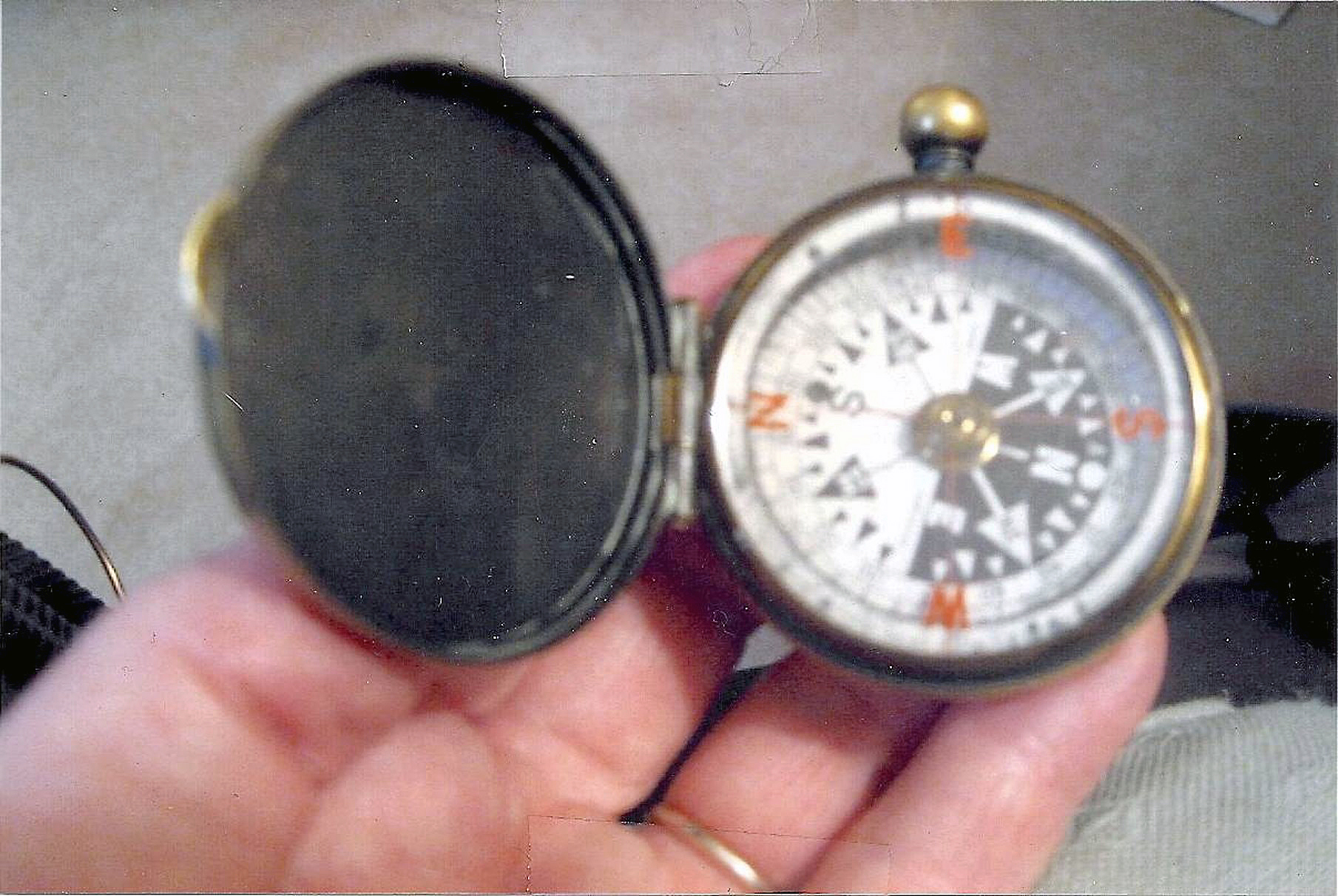
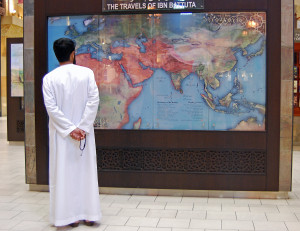
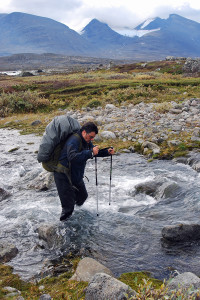
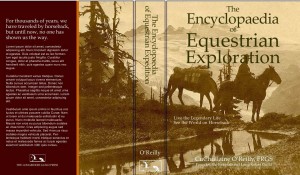


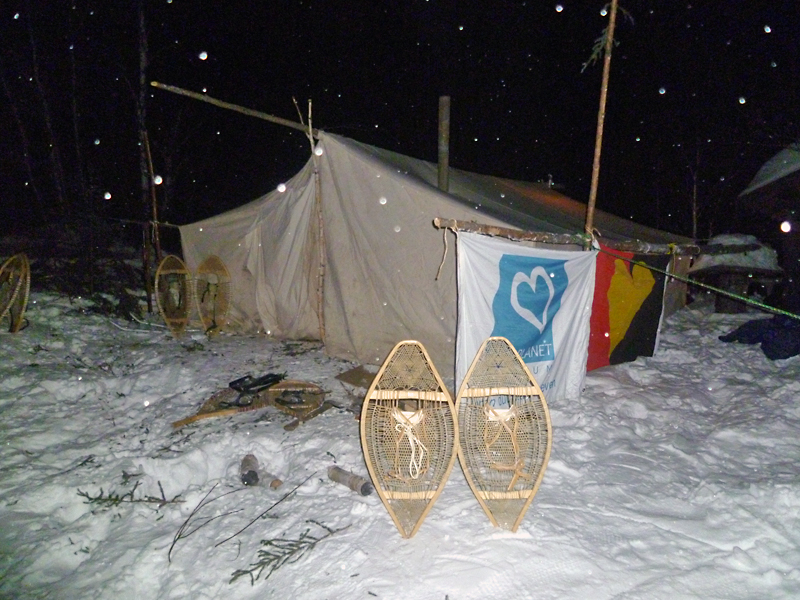
I suppose at some level, when young and full of energy, there is, in most of us perhaps, some desire to have our day, like any dog. There’s nothing wrong in that, it’s often not a bad plan to be a little ambitious at least, it’s the stuff that drives us. But if we strive solely to find a place to strut in and shoulder other names aside – to quote Beryl Markham – that becomes dubious. When competition enters and the battles of plumbing our own depths is not what we aim for but rather for some kind of commercial gain then that it is all it will ever be. It can never be anything else. Purity stands the test of time. Even what might be thought of by some as an unadventurous expedition if undertaken in the spirit of trying to make sense of the world and to be changed by it, will always ring true. Books, essays or even articles written about it, will stand. We live in an age of celebrity. Celebrities come and go, the names disappear: they were never made of the stuff that motivates the pure. How much more pleasant it is to sit with the quiet and unassuming to discover they have done something remarkable than it is to sit in the company of someone who just thinks they have: who did it to have their names bruited about rather than to have done it for a deeper cause. The purists at least, will have experienced what they have done at an intense level, as a spiritual quest, and those are always profound. You will see it in their eyes. The rest, by comparison, however arduous, looks cheap.
Thank you for these insights CuChullaine – a reminder that although times change, we are faced with the same challenges and traps as travellers, and adventurers that existed in the past.
In modern times, there is an illusion of closeness between continents and societies creating a impression that the world has become smaller. Yet anyone who has ridden in the saddle, trekked, rowed, or walked will know that the world is as big and full of magic and surprise, as it ever was. One cannot help but be humbled by the majesty and power of the natural world, nor the kindness that is sometimes shown to a weary traveller. And yet despite this, the search for fame and adulation -coupled with competition- does seem to penetrate as much as ever and unfortunately overrides the beauty and awe revealed to the adventurer in the course of a journey.
What I find interesting is the concern of how other’s may judge the true adventurer or explorer. We live in a world where to remain “below the radar” becomes ever harder, where our every action and motive is under scrutiny and interpretation by the world at large through online and offline media. People will have an opinion based on their interpretation of the world and of the people within and it is easy to become embroiled in justifying our own motives to others. To what end? What is clear is that if we are clear ourselves as to what drives us to embark upon an endeavour, what it is that we wish to acccomplish, mentally, physically and spiritually then what others think, becomes irrelevant. Thus those who “explore” in order to recieve plaudits and financial gain also become irrelevant to those of us who embark on adventure with a pureness of spirit. Riding across a saddle in the Dampier Range at 1700 metre’s, surrounded, awed, humbled and moved to tears by the beauty and magnitude of the landscape around me – my only other thought was to prolong that moment, to stop, make some billy tea and saviour that which I beheld.
In any group there are those who cheapen the real deal, let them, for ultimately they short change only themselves. DO we waste energy denouncing the “commercial adventurer” or do we focus on sharing our own journeys to those whose lives are touched in someway by our own experiences?
Fame lasts but a moment, to inspire others can last longer than a lifetime and that to me is the true spirit of those of us who journey within whilst our physical body journeys without.
There have always been genuine self-effacing explorers and gratuitous fame-seekers and there always will be. Today, the publicity-seeker has to hand technological tools – instant blogging and satellite phones – which enable him to burnish his ego ever more brightly. I have eschewed much of this gadgetry and explored unencumbered by the dead weight of instant communication. Fortunately, I also have an overriding passion which underlies all my exploratory travels – the protection of the critically endangered wild camel from extinction.
Sir Richard Burton sums it up for me, in “The Kasidah”:
“Do what thy manhood bids thee do,
from none but self expect applause;
He noblest lives and noblest dies who makes and keeps his self-made laws.
All other Life is Living death, a world where none but phantoms dwell,
A breath, a wind, a sound, a voice, a tinkling of the camel bell.
Wend now thy way with brow serene,
fear not thy humble tale to tell:
The whispers of the Desert-wind;
the Tinkling of the camel’s bell.”
Well put CuChulliane. Although it is fine at times to be praised by other and congratulated on an achievement if this is our main concern then we lessen what we have done, one wonders how many great adventurers there are and have been but their exploits are unknown to all but a few, and just because no one knows doesn’t reduce the accomplishment and the pride. Modesty is still a valued quality.
Younger people always need competition to grew up, to experience the borders: in society as well as its own. So it is not all bad or wrong. While competition is always a kind of show for others – true travelling is for ourselfs. You can explore the world by travelling abroad or to re-learn your own culture and tear down our own wall of prejudice.
Thank you for sharing your thoughts.